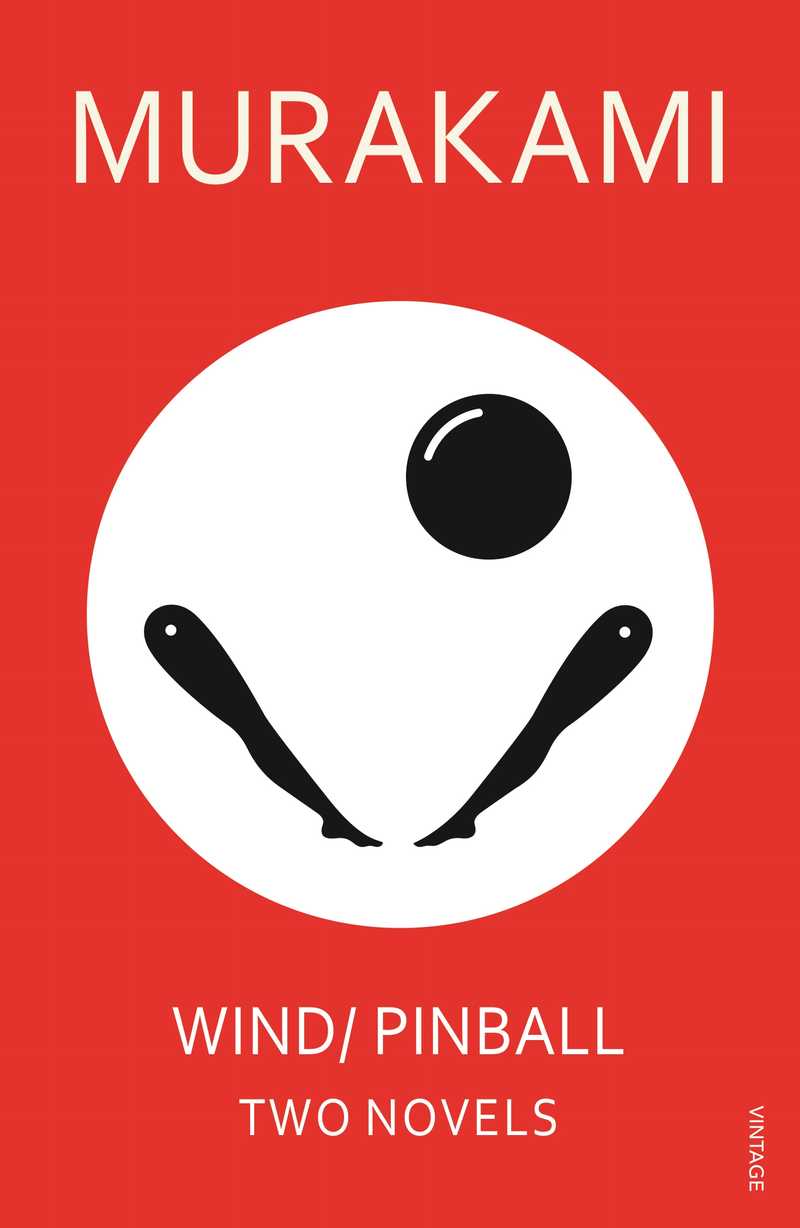Wind/Pinball
These are what Murakami describes as his "Kitchen table novels". They are the first books he ever wrote, and the opening essay that explains this is just as wonderful (if not more so) than the two novels that follow.
That is not to say these weren't both great books. As Murakami states, Hear the Wind Sing was written by hand and his only manuscript sent to the publisher as an award submission, that it won. It is just that Hear the Wind Sing very much reads like someone's first book.
This was my first time reading any Murakami and I knew he was famous for his relaxed, simplistic style. I know understand what people talk about and why they revere him. His ability to speak so precisely about a feeling everyone can experience is truly exceptional. However had I not had the second novel, Pinball, to follow on with, I would have felt a little bit underwhelmed.
Wind has so little in it really. Its closer to a series of vignette than it is a novel. And it reads so quickly and so steadily that it all sort of blurs into one. It all feels profound but you're unable to place your finger on what exactly it is he's getting at.
Pinball however is much more fleshed out and I enjoyed significantly more. The set piece at the end in the warehouse is a masterpiece, worth reading the whole book just for those 10 pages or so (probably less).
Quotes
Wind
Whenever I look at the ocean, I always want to talk to people, but when I'm talking to people, I always want to look at the ocean
Everyone who has something is afraid of losing it, and people with nothing are worried they'll forever have nothing. Everyone is the same.
Things pass us by. Nobody can catch them. That's the way we live our lives.
If writers only wrote about things everybody knew, what the hell would be the point of writing?
I like the sky. You can look at it forever and never get tired of it, and when you don’t want to look at it anymore, you stop.
Whenever I wake up in a strange house I always feel as if the wrong soul got stuffed into the wrong body.
Pinball
On any given day, something claims our attention. Anything at all, inconsequential things. A rosebud, a misplaced hat, that sweater we liked as a child, an old Gene Pitney record. A parade of trivia with no place to go. Things that bump around in our consciousness for two or three days then go back to wherever they came from... to darkness. We've got all these wells dug in our hearts. While above the wells, birds flit back and forth.
Sometimes I feel like a caretaker of a museum -- a huge, empty museum where no one ever comes, and I'm watching over it for no one but myself.
So many dreams, so many disappointments, so many promises. And in the end, they all just vanish.
If you look at things from a distance, most anything looks beautiful
This uneasiness comes over me from time to time, and I feel as if I've somehow been pieced together from two different puzzles.
She gave me this look – she might have been watching from a lifeboat as the ship went down. Or maybe it was the other way around.
